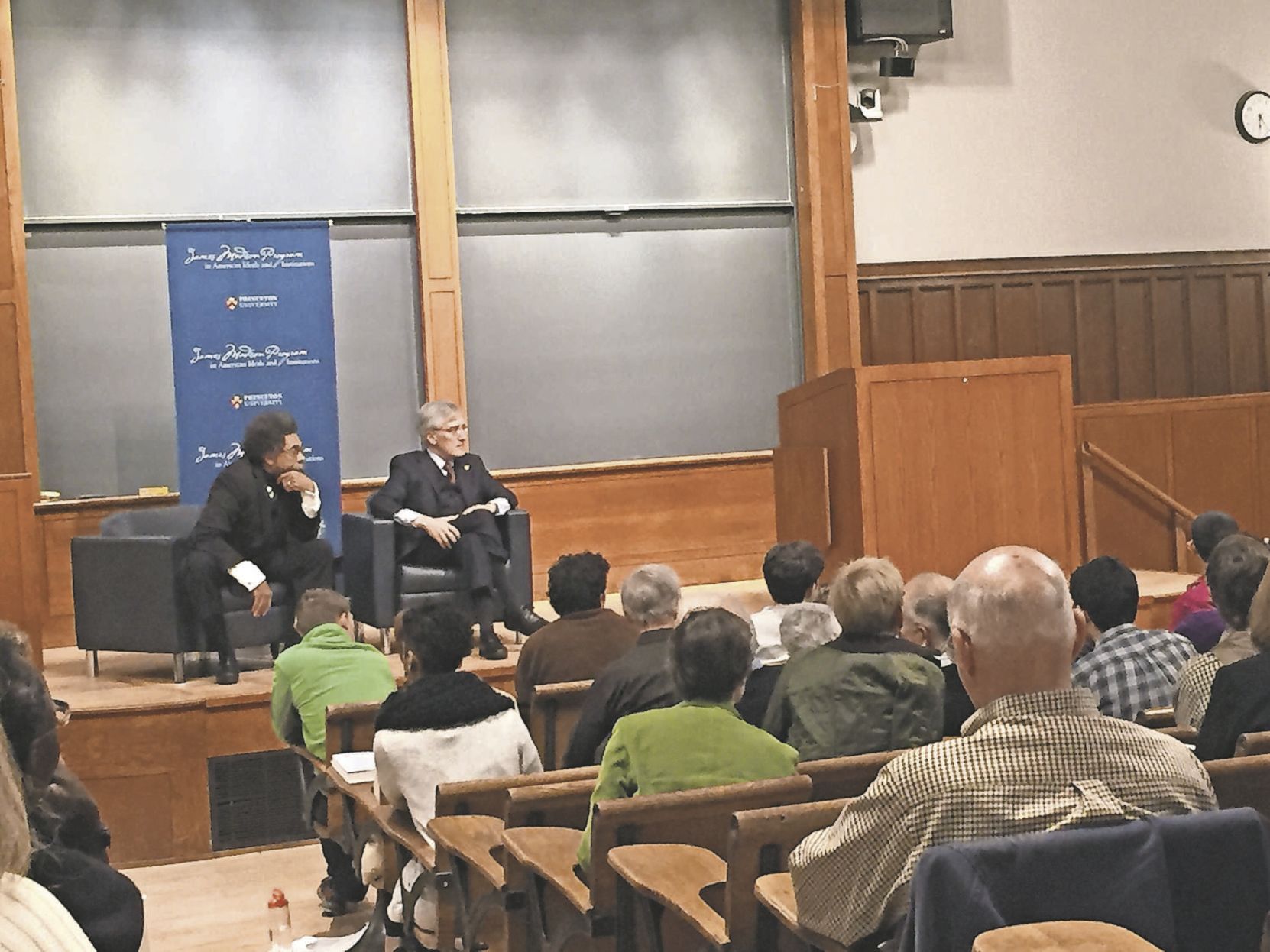By Francesca Billington, Contributing Writer
Speaking about the importance of a liberal arts education, Robert George, Princeton Professor of Jurisprudence, and Cornel West, Class of 1943 university professor in the Center for African American Studies, stressed the inherent value of learning and the importance of making errors while searching for truth through higher education.
Dean of the College Jill Dolan introduced both Mr. George and Mr. West as the speakers of the discussion “What is the Point of a Liberal Arts Education?” on Oct. 10 at Princeton University.
Ms. Dolan first gave context for the topic of the talk, suggesting that relevance and importance of liberal arts is currently under question.
“The liberal arts as a foundation for education have been under attack as of late,” Ms. Dolan said. “There are those, in fact, who would replace the project of developing and accumulating knowledge by studying, for instance history, philosophy, political theory and the arts, with an approach to education as purely instrumental job training. I believe we can do better.”
Mr. George grew up in a family that valued education for “instrumental purposes,” meaning skills that prepare students for jobs. While attending Swarthmore College, however, Mr. George learned the inherent value of learning independent of this job-seeking approach.
During the discussion, Mr. George encouraged all students to look at education and learning beyond its ability to train them for employment after school.
“This is one message that I do preach — the importance of not reducing your education at Princeton to purely instrumental purposes because there is a richness, a greatness and a deep found value in knowledge for its own sake,” said Mr. George.
Both Mr. George and Mr. West also spoke of the morals and characteristics that students who attend liberal arts colleges acquire. Mr. George began that conversation by introducing the virtues of honesty and humility.
He said that a liberal arts education does not promise that students will become morally good people. However, what it does do is cause students to practice honesty and humility, which can be later applied to life outside of college.
Mr. West agreed with this point and explained that a liberal arts education encourages students to question their own beliefs and accept that they might be wrong.
“[It is] mustering the courage to critically examine the sums of the presuppositions and let some of them go,” Mr. West said.
The willingness to challenge one’s own ideals and listen to what others think is the core of a liberal arts education, Mr. West added.
The concern or goal of the liberal arts education is ultimately to find out how to get young thinkers to tend to the topics that matter and muster the courage for them to be self-critical. Mr. West wants to instill a feeling of imagination and passion in students, which will then allow them to “look at the world outside of the dominant paradigms, disciplines and mass media.”
However, the issue with students not feeling inclined to challenge themselves is our tainted current attitude toward the idea of being smart.
“It’s an in-crowd word to be a part of culture of smartness,” Mr. West said. “I see one of the major challenges to our generation is the culture of smartness and knowledge. The smartness has its own provincialism that doesn’t raise certain kinds of questions, that doesn’t tend to a certain kind of reality just to be part of the in-crowd mainstream line [of] ‘smart.’ ”
He proposed instead that we ought to value a type of moral and spiritual awakening — something more important than smartness and money — which can be achieved by a liberal arts education.

